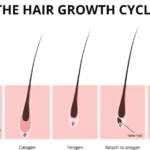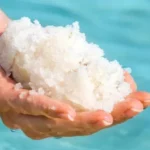Discover the numerous advantages of soft water with our comprehensive guide, [The Many Advantages of Soft Water: Key Points to Know]. If you’re curious about the benefits of using soft water in your home, from improved skin and hair health to increased appliance longevity, this article is for you. In a concise and easily digestible format, we’ll delve into the key points that highlight why soft water is a game-changer for your household. Prepare to be amazed by the transformative effects of soft water on your everyday life.
Key Takeaways:
- Soft water has a smoother and more pleasant taste compared to hard water.
- Cleaning tasks become easier with soft water as it lathers easily with soap, resulting in more effective cleaning and less residue left behind.
- Soft water helps maintain healthier skin by preventing dryness and irritation often caused by using harsh minerals found in hard water.
- Soft water has a positive impact on clothes, making them look brighter and last longer. It also prevents limescale buildup, which can damage clothing over time.
- Soft water inhibits the accumulation of limescale in appliances and plumbing, extending their lifespan and reducing maintenance needs.
- Soft water improves the efficiency of soaps and detergents, allowing for better cleaning and less product usage.
- When used for washing clothes, soft water ensures softer and cleaner laundry, reducing the need for additional fabric softeners.
- Soft water results in significant soap savings, making it more cost-effective for washing purposes.
- Soft water is compatible with dyeing processes, making it a preferred choice in the dyeing industry.
- Unlike hard water, soft water does not leave stains on white clothes when used for laundry.
- Soft water facilitates better washing, resulting in reduced time spent on washing and cleaning tasks.
- Due to the absence of mineral residues, soft water allows cleaning products to work more effectively.
- Soft water has fewer corrosive properties compared to hard water, ensuring less damage to plumbing systems and appliances.
Advantages of Soft Water

Soft water offers numerous benefits that make it preferable over hard water. Let’s explore the advantages of using soft water in points:
1. Better Taste
Soft water has a smoother and more pleasant taste compared to hard water. Say goodbye to the unpleasant mineral aftertaste!
2. Easy Cleaning
With soft water, cleaning tasks become a breeze. It lathers easily with soap, resulting in more effective cleaning and leaving behind less residue. No more scrubbing away stubborn soap scum!
3. Brighter and Healthier Skin
One of the most significant advantages of soft water is its impact on your skin. Soft water helps maintain healthier skin by preventing dryness and irritation often caused by using harsh minerals found in hard water. Say hello to softer, more vibrant skin!
4. Improved Clothing Quality
Soft water has a positive effect on your clothes. It makes them look brighter and last longer. Plus, it prevents limescale buildup, which can damage clothing over time. Your favorite outfits will thank you!
5. Prevention of Limescale Buildup
Hard water can lead to the accumulation of limescale in appliances and plumbing, causing reduced efficiency and costly repairs. Soft water inhibits this buildup, extending the lifespan of your appliances and reducing maintenance needs. No more dealing with clogged pipes or malfunctioning appliances!
6. Enhanced Soap and Detergent Effectiveness
Soft water improves the efficiency of soaps and detergents, allowing for better cleaning and less product usage. You’ll save money and enjoy cleaner results!
7. Softer and Cleaner Laundry
When used for washing clothes, soft water ensures softer and cleaner laundry. It reduces the need for additional fabric softeners and removes stubborn stains more effectively. Your clothes will feel luxuriously soft against your skin!
8. Economical Soap Usage
One of the financial advantages of soft water is its lathering properties. It results in significant soap savings, making it more cost-effective for all your washing purposes. Your wallet will thank you!
9. Compatibility with Dyeing
In the dyeing industry, soft water is a preferred choice due to its compatibility with dyeing processes. It helps ensure consistent and vibrant results. Say hello to beautifully dyed fabrics!
10. Stain Prevention in White Clothes
Unlike hard water, soft water does not leave unsightly stains on white clothes when used for laundry. You can confidently wear your favorite white garments without worrying about stubborn mineral stains!
11. Time Savings
Soft water facilitates better washing, resulting in reduced time spent on washing and cleaning tasks. Enjoy more free time for the things you love!
12. Enhanced Cleaning Product Efficiency
Due to the absence of mineral residues, soft water allows cleaning products to work more effectively. You’ll experience better results when cleaning your home, saving you time and effort.
13. Lower Corrosive Properties
Soft water has fewer corrosive properties compared to hard water. This ensures less damage to plumbing systems and appliances, saving you money on repairs and replacements.
In conclusion, the advantages of soft water are abundant. From improved taste to easier cleaning, healthier skin, better laundry results, prevention of limescale buildup, increased soap and detergent effectiveness, and more, it’s clear why soft water is the preferable choice. So why settle for anything less? Make the switch to soft water and experience these benefits firsthand!
Sources:
- Water Softener Pros and Cons (Benefits) – Water Defense
- Discover the Pros and Cons of Water Softeners – Pure Water Blog
To learn about the numerous benefits of grey water recycling, click here.
Discover the advantages of hard water in points by checking out this informative link: advantages of hard water in points.
Want to know why river sand is so advantageous? Find out more here.
Uncover fascinating facts about the African bush elephant by clicking here.
Explore the map of the alpine tundra biome by following this link: alpine tundra biome map.
Enhances the Lifespan of Household Appliances

Soft water is not only beneficial for our health and everyday tasks, but it also plays a crucial role in extending the lifespan of our household appliances. The advantages of using soft water in our appliances go beyond preventing scale buildup and maintaining efficiency. Let’s explore how soft water enhances the lifespan of household appliances.
Prevents Scale Buildup and Maintains Efficiency
One of the primary reasons why soft water is suitable for household appliances is its ability to prevent scale buildup. Hard water, which contains high levels of calcium and magnesium, can leave behind mineral deposits, commonly known as limescale, in appliances. Over time, this buildup can restrict water flow, reduce the efficiency of the appliance, and even cause irreversible damage.
By using a water softener to treat the water supply, we can eliminate minerals that cause scale buildup, thus ensuring that our appliances function optimally. Whether it’s the washing machine, dishwasher, or water heater, soft water prevents limescale from accumulating, leading to improved performance and a longer lifespan for our appliances.
Reduces Water Usage and Prevents Appliance Repair Bills
Soft water not only contributes to the efficiency of our appliances but also helps us save on water usage and costly repair bills. When limescale buildup occurs in appliances, they often require more water to operate effectively. For example, washing machines may need additional water to compensate for reduced water flow due to scale buildup.
With soft water, appliances can operate more efficiently, allowing us to save on water consumption. Additionally, by preventing limescale from accumulating, we can avoid the need for costly repairs or even premature replacement of our household appliances. The potential cost savings in terms of reduced water usage and avoiding repair bills make soft water a smart choice for extending the lifespan of our appliances.
Protects Plumbing and Prevents Damage
It’s not just the appliances themselves that can benefit from the use of soft water; our plumbing system can also be protected and maintained. Hard water can result in limescale buildup in pipes and fixtures, leading to reduced water flow, clogs, and even damage to the plumbing system over time.
By installing a water softener, we can ensure that the water flowing through our pipes is free from the minerals that cause scale buildup. This not only helps to maintain optimal water flow but also extends the lifespan of our plumbing system, preventing costly repairs or replacements.
Cost-Effective Solution for Appliance Longevity
Installing a water softener is an investment that pays off in the long run. While the upfront cost of a whole-home water softener can vary, the benefits it provides in terms of extending the lifespan of household appliances make it a cost-effective solution. With proper care and maintenance, some water softeners can last up to 30 years, providing continuous benefits for our appliances.
Moreover, the prevention of scale buildup and improved efficiency resulting from soft water usage can help us save money on energy bills. With appliances working optimally and efficiently, we can reduce energy consumption, leading to additional cost savings over time.
Key Takeaways:
- Soft water prevents scale buildup, maintaining the efficiency of household appliances.
- It reduces water usage in appliances and improves their overall performance.
- Soft water protects the plumbing system, preventing damage and potential repair costs.
- Installing a water softener is a cost-effective solution for extending the lifespan of appliances.
- Soft water usage provides long-term savings on energy bills.
Sources:
- Water Softeners Improve the Lifespan of Your Appliances – Angi
- 14 Pros and Cons of Water Softeners You Need to Know About – Water Filter Guru
Minimizes Skin and Hair Dryness
Soft water has numerous advantages when it comes to taking care of your skin and hair. Unlike hard water, which contains high levels of minerals like calcium and magnesium, soft water is gentle and moisturizing. Let’s explore how soft water minimizes skin and hair dryness.
How Soft Water Helps Your Skin and Hair
- Soft water is more efficient for cleaning. It forms a sudsy lather easily and rinses away soap more effectively, leaving no residue behind.
- Soft water doesn’t leave a soap scum residue on your body, which can further contribute to dryness and irritation.
- Bathing with soft water can improve the overall structure of your hair. Hard water, with its high mineral content, can damage the hair shaft, making it appear flat or greasy. Soft water, on the other hand, helps maintain the natural moisture balance of your hair, giving it a healthier and shinier look.
- Individuals with conditions like xerosis and atopic dermatitis can benefit from bathing with soft water. It can help reduce skin disruption and improve the skin’s water content, alleviating symptoms and providing relief.
- Soft water contains fewer minerals compared to hard water, which means it is less likely to strip away the natural oils from your skin and hair. This helps in maintaining their moisture levels, preventing dryness and itchiness.
Key Takeaways:
- Soft water is more efficient for cleaning and doesn’t leave a soap scum residue.
- It improves the structure of your hair and prevents it from appearing flat or greasy.
- Soft water is beneficial for individuals with xerosis and atopic dermatitis.
- It contains fewer minerals compared to hard water, helping maintain the moisture balance of your skin and hair.
Sources:
– Benefits of Soft Water for Your Skin and Hair
– The Benefits of Soft Water for Hair, Skin, and Nails
Saves Money on Energy Bills
Soft water offers numerous benefits for households, and one of the most significant advantages is its ability to save money on energy bills. By investing in a water softener system, homeowners can experience long-term cost savings and enhance the overall quality of their water supply.
Here are the key reasons why soft water saves money on energy bills:
Improved Efficiency of Water Heaters: Hard water contains minerals like calcium and magnesium that can build up in water heaters over time, reducing their efficiency. This buildup forces the heater to work harder and consume more energy to provide hot water. With soft water, the absence of mineral deposits allows water heaters to operate at their optimal efficiency, resulting in energy savings and lower monthly utility bills.
Extended Lifespan of Appliances: Appliances such as water heaters, washing machines, and dishwashers tend to last longer when used with soft water. The absence of mineral deposits eliminates the risk of breakdowns and reduces the need for costly repairs or replacements. Soft water improves the efficiency of these appliances, which not only saves money on energy bills but also increases their overall lifespan, saving homeowners from the expense of buying new appliances prematurely.
Reduction in Maintenance Costs: Hard water can cause mineral buildup in plumbing fixtures and pipes, leading to clogs and corrosion. This can result in expensive plumbing repairs and maintenance. However, soft water prevents mineral buildup, reducing the risk of plumbing issues and the need for costly repairs. By investing in a water softener system, homeowners can reduce their maintenance costs and allocate their funds towards other essential expenses.
Efficient Cleaning and Less Product Usage: Soft water lathers easily with soap and eliminates the need for heavy scrubbing. This means less time and effort spent on cleaning tasks. Moreover, soft water reduces the need for cleaning products as it achieves the same cleaning results with less soap. Less soap usage translates to cost savings on cleaning supplies, helping homeowners save money in the long run.
Prevention of Appliance Damage and Replacement: The minerals present in hard water can cause scale buildup in appliances, leading to decreased efficiency and potential damage. Soft water prevents scale buildup, which helps appliances operate optimally, reducing the need for repair or replacement. By avoiding the costs associated with replacing appliances damaged by hard water, homeowners can save a significant amount of money.
Key Takeaways:
- Soft water helps save money on energy bills by improving the efficiency of water heaters.
- Appliances like water heaters, washing machines, and dishwashers last longer when used with soft water.
- Soft water reduces maintenance costs by preventing plumbing issues and the need for costly repairs.
- Cleaning becomes more efficient with soft water, resulting in less usage of cleaning products and cost savings.
- Soft water prevents appliance damage and the need for expensive replacements.
Sources:
– Water Filter Guru: Top 7 Benefits of Soft Water
– Department of Energy: Reasons Every Home Should Have a Water Softener
FAQ
Q1: How does soft water taste compared to hard water?
A1: Soft water has a smoother and more pleasant taste compared to hard water.
Q2: Does using soft water make cleaning tasks easier?
A2: Yes, soft water lathers easily with soap, resulting in more effective cleaning and less residue left behind.
Q3: Can soft water improve the quality of clothes?
A3: Yes, soft water has a positive impact on clothes, making them look brighter and last longer. It also prevents limescale buildup, which can damage clothing over time.
Q4: Does soft water prevent limescale buildup in appliances and plumbing?
A4: Yes, soft water inhibits the accumulation of limescale in appliances and plumbing, extending their lifespan and reducing maintenance needs.
Q5: How does soft water enhance the effectiveness of soaps and detergents?
A5: Soft water improves the efficiency of soaps and detergents, allowing for better cleaning and less product usage.
- Star Ring Trends: Etsy vs Amazon - March 28, 2025
- Boost Pollinator Habitats: Baby Blue Eyes Sustainable Farming Guide - March 28, 2025
- Protect Big Black Bears: Effective Conservation Strategies - March 28, 2025
















